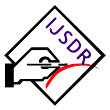Imp Links for Author
Imp Links for Reviewer
Research Area
Subscribe IJSDR
Visitor Counter
Copyright Infringement Claims
Indexing Partner
|
Published Paper Details
|
|
| Paper Title: | Dietary Intake and Risk of Eating Disorder among Different Phenotypes of Polycystic Ovarian Syndrome |
| Authors Name: | Surbhi Tripathi , Mukta Singh , Madhu Jain , Manushi Srivastava |
| Unique Id: | IJSDR2206020 |
| Published In: | Volume 7 Issue 6, June-2022 |
| Abstract: | Polycystic Ovarian Syndrome (PCOS) is directly associated with bodyweight that could be triggered by altered dietary behavior which includes binge eating, anorexia nervosa, uncontrolled eating, bulimia, and excessive dieting behavior. The present study aimed to assess dietary intake and eating disorders among different phenotypes of polycystic ovarian syndrome. Total 147 women suffering from PCOS were selected as the case and 144 women as control group. All PCOS subjects were classified into four phenotypes i.e. A, B, C, D based on the presence and absence of symptoms such as hyperandrogenism, ovulatory dysfunction, polycystic ovarian morphology. Dietary intake and eating disorder were measured by self-constructed food frequency questionnaire, 24-hour dietary recall and EAT-26 scale. Mean energy and fat intake was significantly high (<0.01) in phenotypes of PCOS as compared to the control group. Carbohydrate intake was high among all phenotypes as compared to the healthy subject but statistically not significant. A significant difference was observed <0.01 among all participants in reference of eating disorder. Maximum participants from phenotypic classification were at risk to develop eating disorder. A limited energy and fat intake could be helpful in managing symptoms associated with the different phenotypes of PCOS. |
| Keywords: | ovulatory dysfunction, nutritional status, dietary intake, eating disorder |
| Cite Article: | "Dietary Intake and Risk of Eating Disorder among Different Phenotypes of Polycystic Ovarian Syndrome", International Journal of Science & Engineering Development Research (www.ijsdr.org), ISSN:2455-2631, Vol.7, Issue 6, page no.121 - 125, June-2022, Available :http://www.ijsdr.org/papers/IJSDR2206020.pdf |
| Downloads: | 000337067 |
| Publication Details: | Published Paper ID: IJSDR2206020 Registration ID:200486 Published In: Volume 7 Issue 6, June-2022 DOI (Digital Object Identifier): Page No: 121 - 125 Publisher: IJSDR | www.ijsdr.org ISSN Number: 2455-2631 |
|
Click Here to Download This Article |
|
| Article Preview | |
|
|
|
Major Indexing from www.ijsdr.org
| Google Scholar | ResearcherID Thomson Reuters | Mendeley : reference manager | Academia.edu |
| arXiv.org : cornell university library | Research Gate | CiteSeerX | DOAJ : Directory of Open Access Journals |
| DRJI | Index Copernicus International | Scribd | DocStoc |
Track Paper
Important Links
Conference Proposal
ISSN
 |
 |
DOI (A digital object identifier)
  Providing A digital object identifier by DOI How to GET DOI and Hard Copy Related |
Open Access License Policy
Social Media
Indexing Partner |
|||
| Copyright © 2024 - All Rights Reserved - IJSDR | |||






Facebook Twitter Instagram LinkedIn